24 - 28 October 2022
Commercial entities could be the key to international cooperation in outer space
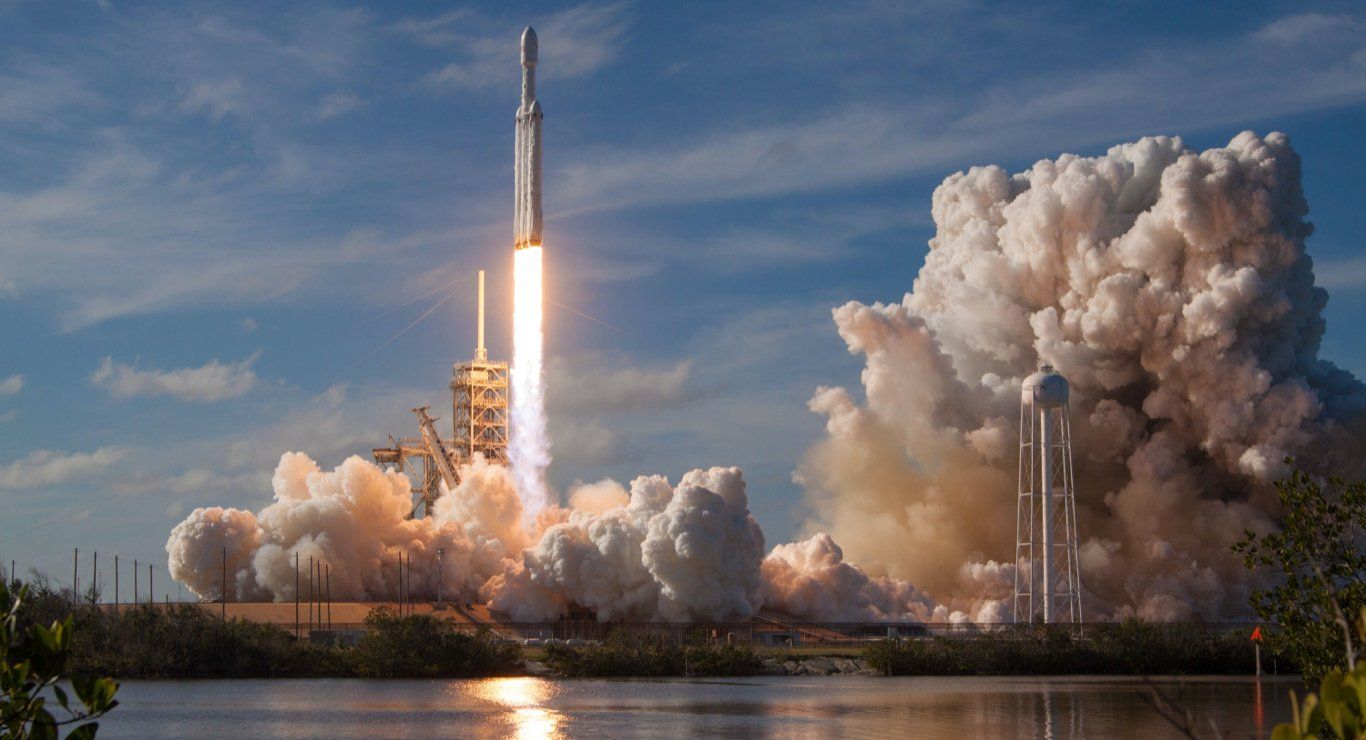
SpaceX are now NASA's largest for-profit vendor (Image: SpaceX)
Cooperation in space is key to our future success, and this is perfectly exemplified in the ongoing cooperation on the ISS between Russia and the US, despite deteriorating international relations over the Ukraine crisis. Cooperation is vital for issues such as debris and traffic management, establishing rules and norms for safety and sustainability, and in order to share resources fairly and enable a peaceful future in outer space.
However, there are increasing threats to this vision of a cooperative future. Russia and the west are growing further apart, with Mercedes Benz being latest international company to fully withdraw from Russia. The US and China appear to be engaging in a new space race, and legal hurdles such as the US Wolf Amendment still prevents NASA from using public money in order to cooperate with the Chinese government or state entities.
This decline in international cooperation is coming at a time when space is increasingly becoming a national directive, throughout the world, with new players emerging. This week NASA has committed to its long-term plans for the Artemis missions, ordering 3 more Orion spacecraft from Lockheed Martin, and have also been testing a prototype lunar rover, also earmarked for the Artemis programme. China’s secretive spaceplane has been noted to have raised its orbit, bringing up questions surrounding the uses of such technology (similar tech also under development with the US). Furthermore, Chinese scientists have had a breakthrough with the development of electromagnetic propulsion, shifting a 1000kg object up to 1030kph, claiming the breakthrough could revolutionise space exploration and would eliminate need for fossil fuels.
At the same time, the US space force this week announced to seek an increased budget beyond 2023, in order to keep ahead of China in space, with Gen. David “DT” Thompson, U.S. vice chief of space operations admitting that “Their space capabilities are still not quite as good as ours, but they are really, really good.” Additionally, geopolitical events continue to affect international relations, seemingly preventing the growth of any kind of new cooperation in space. The Ukraine conflict has steered European countries to establish their own sovereign launch capabilities, severing ties with Russian Soyuz. Also, this week a Ukrainian lawmaker, whilst visiting Taiwan, has hinted that Ukraine could look to build closer ties with China, should it be discovered that Russia has received assistance from the Chinese in their war against Ukraine. International relations are shifting, and it appears that universal cooperation in space may be some way off.
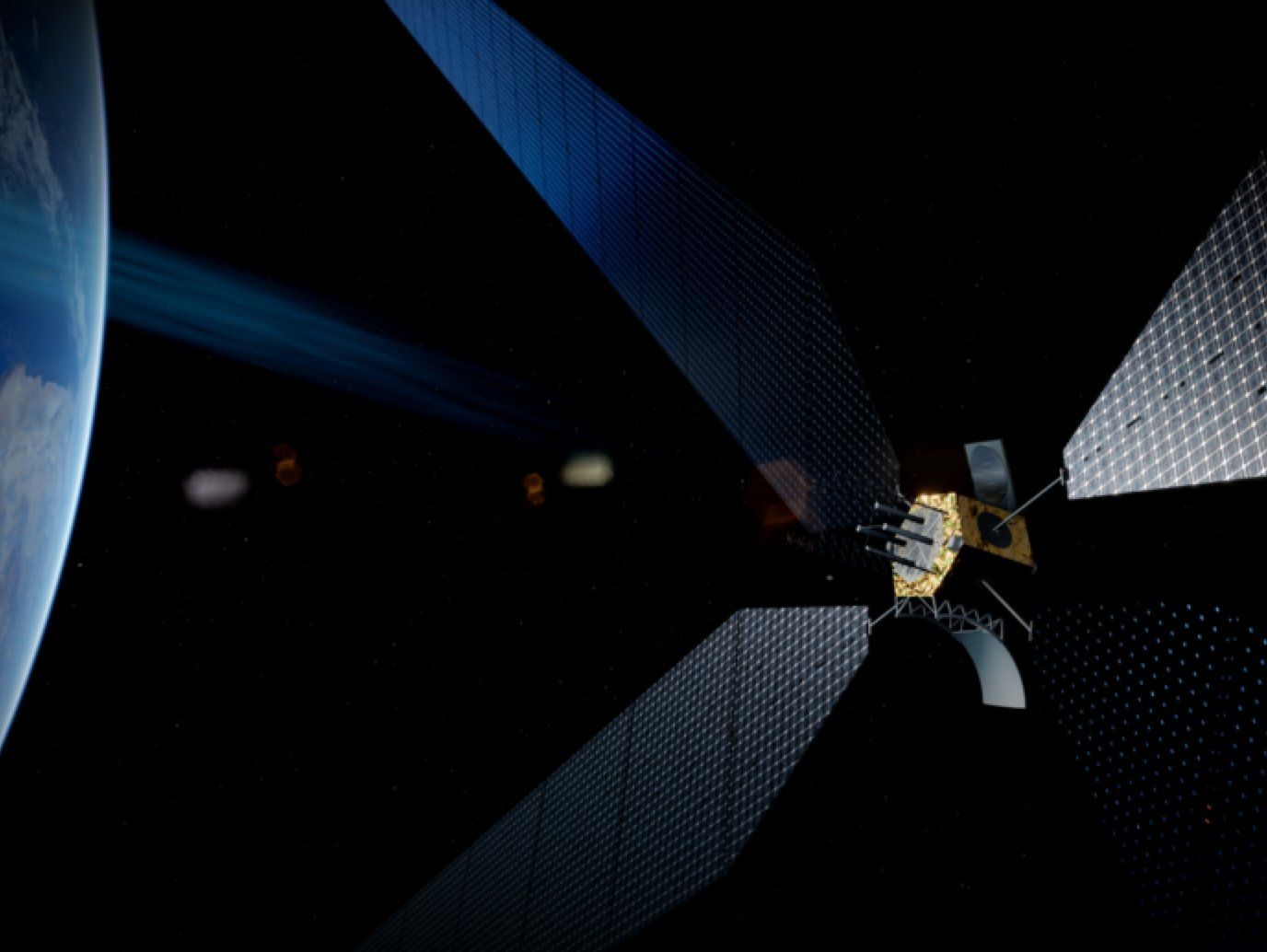
Increasing interest in space based solar power (Image: ESA)
Private sector supplying innovation to protect Earth and our future
A new drive to discover space is still increasingly driven by the private sector, increasing efficiency and accessibility, and this week provided us with yet more evidence of this. An article from
compositesworld.com highlighted the development in carbon fibre first stage fuel tanks in rockets, in being able to increase efficiency and payload capacity. Such tech is under development by Boeing and the German DLR. Could this technology be yet another milestone in increasing accessibility to space?
Similarly, rocket manufacturers Relativity Space continue on course with their plans to “disrupt” the market with their 3D printed, reusable rockets. Co-founder, Tom Ellis, said in an interview with ARS Technica "Almost from the beginning of the company I wanted to build a Falcon 9 competitor, because I really think that’s needed in the market”. Their reusable Terran R rocket is due to launch late 2024. Another company looking into the benefits of AM technology and reusability is German company, Rocket Factory Augsburg (RFA), highlighting the importance of being able to reuse the engines, being the most expansive part of the rocket.
Another area of increasing interest is space-based solar power generation, with the ESA making it priority as part of its POLARIS preparatory programme, due to be discussed at the ESA Council at Ministerial Level in November 2022. UK-based engineering solution firm IECL are developing their project, Cassiopeia, to generate solar power in space for terrestrial energy needs. They would look to transfer the energy using radio frequency microwave radiation. New Zealand company, Emrod, have also recently demonstrated their wireless energy transfer technology, looking at using creating a satellite network to transfer energy around the globe. Space-based solar energy looks to grow significantly, especially in humankind’s quest to reduce reliance on fossil fuels and importing energy from abroad.
In other innovations this week, Welsh company Space Forge are looking forwards to launching their Forgestar-0 satellite as part of Virgin Orbit’s debut UK launch next month. The satellite will be their first demonstration of orbital in-situ manufacture, taking advantage of zero gravity to create 'super materials' such as new alloys, medicines, and semiconductors. This demonstration also closely aligns to Jeff Bezos’ vision of ‘building a road to space’, and taking industries off the planet.
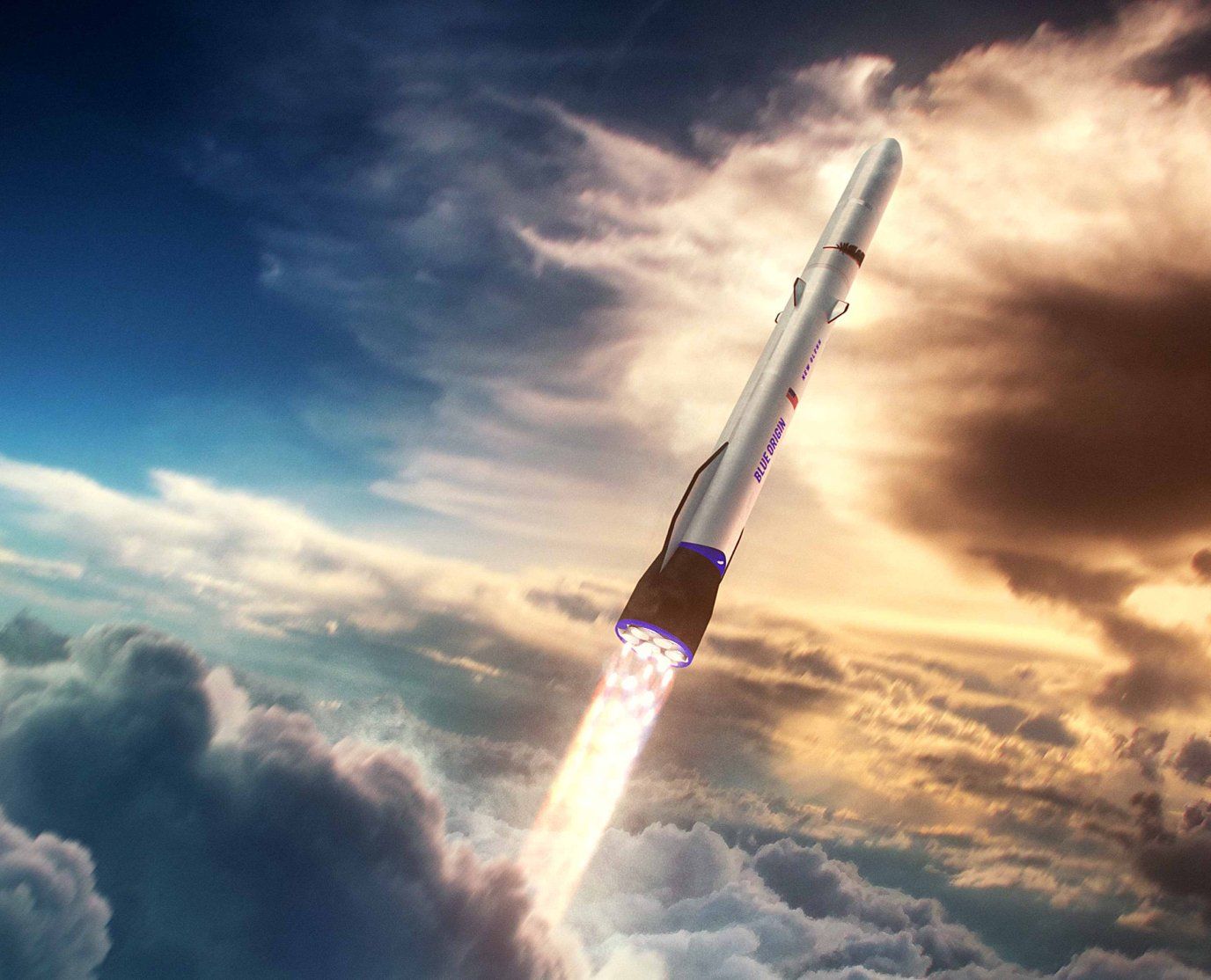
Blue Origin working on New Glenn and commercial station (Image: Blue Origin)
Private sector could provide a neutral outlet for cooperation
More nations are making it a national determination, to make space a part of their future, and reap the benefits from it, which in turn, is giving rise to a new commercial sector. Yet whilst the space industry is on the rise, cooperation between leading space the leading space nations Russia, US and China appears to be declining. But at the same time, all the major parties appear to have a shared desire to maintain and build a peaceful future in outer space. Iran this week become the latest to commit its future in space for peaceful purposes.
Whilst nations and national agencies may be finding it more difficult to build cooperation, brought about by events such as the Ukraine conflict, then perhaps the increasingly influential private sector can provide a new entry point. It’s something we regularly discuss, but was reaffirmed in an article from Space News this week. Representatives of countries currently involved in the ISS at the American Institute of Aeronautics and Astronautics’ ASCEND conference on October 25th discussed how cooperation on new, commercial space stations, might work. Of course, things will have to work differently than ISS, which currently managed by national agencies. New commercial stations may be developed through a cooperative of international companies. For example, Axiom’s proposed stations will see Thales Alenia (Francece/Italy) working alongside Axiom (US), opening a gateway for international cooperation.
Whilst NASA is mostly prohibited from working with the Chinese national space agency, would there be any measures in place to prevent cooperative projects through private platforms, such as commercial stations? The UAE seem to be attempting this form of bridge-building, by working with iSpace (Japan) and SpaceX (US), in order to launch their lunar rover, but at the same time will still work with the CNSA (China) to launch a later lunar mission in 2026. By working with US private companies, has the UAE found its way around geopolitical barriers?
Whether these attempts are successful or not, cooperation will need to found in some way or shape. As well for simply preserving peace, working together makes our future in space more sustainable and safer. The ISS has recently again had to swerve to avoid a debris, caused by the Russian ASAT test last year. Without cooperation on issues such as spatial awareness, collisions may not be avoided, especially in an ever more populated Earth orbit. Moreover, it will be, and already is, essential in order to build a framework which allows space to be the benefit of all humankind, and not the few.
Private sector companies are becoming influential stakeholders, and it’s with their innovations that we’ll find success in space. For example, this week it was revealed that SpaceX are now NASA’s largest for-profit vendor. Furthermore, executives from Blue Origin were recently given an unclassified briefing from US Space Systems Command. We can see the value that is being placed on such companies.
Through providing the innovative technology required to succeed in space, the private sector could perhaps provide new perspectives, and have the influence required to build peaceful, constructive and cooperative international relationships in space.
External Links
This Week
*News articles posted here are not property of ANASDA GmbH and belong to their respected owners. Postings here are external links only.
Our future in space
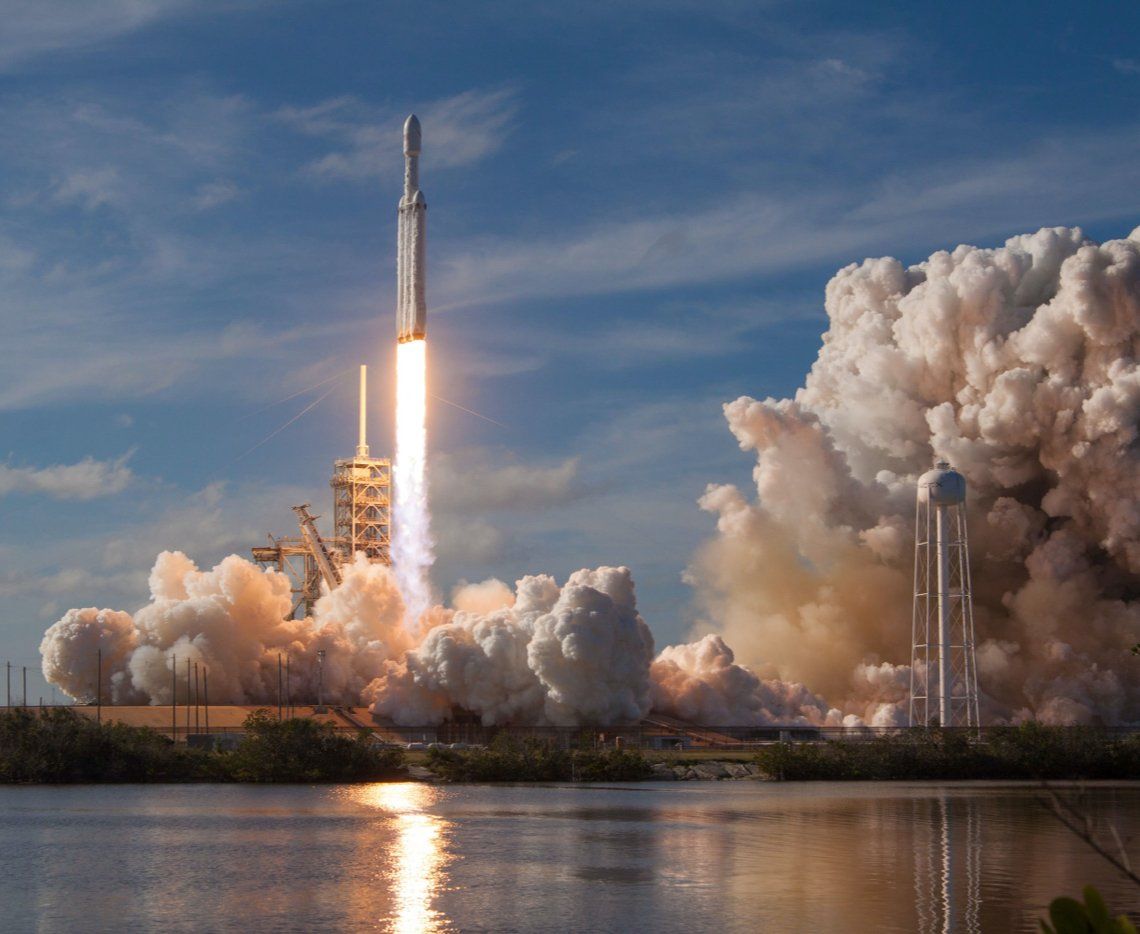
SpaceX are now NASA's largest for-profit vendor (Image: SpaceX)
24 - 28 October 2022
Commercial entities could be the key to international cooperation in outer space
Cooperation in space is key to our future success, and this is perfectly exemplified in the ongoing cooperation on the ISS between Russia and the US, despite deteriorating international relations over the Ukraine crisis. Cooperation is vital for issues such as debris and traffic management, establishing rules and norms for safety and sustainability, and in order to share resources fairly and enable a peaceful future in outer space.
However, there are increasing threats to this vision of a cooperative future. Russia and the west are growing further apart, with Mercedes Benz being latest international company to fully withdraw from Russia. The US and China appear to be engaging in a new space race, and legal hurdles such as the US Wolf Amendment still prevents NASA from using public money in order to cooperate with the Chinese government or state entities.
This decline in international cooperation is coming at a time when space is increasingly becoming a national directive, throughout the world, with new players emerging. This week NASA has committed to its long-term plans for the Artemis missions, ordering 3 more Orion spacecraft from Lockheed Martin, and have also been testing a prototype lunar rover, also earmarked for the Artemis programme. China’s secretive spaceplane has been noted to have raised its orbit, bringing up questions surrounding the uses of such technology (similar tech also under development with the US). Furthermore, Chinese scientists have had a breakthrough with the development of electromagnetic propulsion, shifting a 1000kg object up to 1030kph, claiming the breakthrough could revolutionise space exploration and would eliminate need for fossil fuels.
At the same time, the US space force this week announced to seek an increased budget beyond 2023, in order to keep ahead of China in space, with Gen. David “DT” Thompson, U.S. vice chief of space operations admitting that “Their space capabilities are still not quite as good as ours, but they are really, really good.” Additionally, geopolitical events continue to affect international relations, seemingly preventing the growth of any kind of new cooperation in space. The Ukraine conflict has steered European countries to establish their own sovereign launch capabilities, severing ties with Russian Soyuz. Also, this week a Ukrainian lawmaker, whilst visiting Taiwan, has hinted that Ukraine could look to build closer ties with China, should it be discovered that Russia has received assistance from the Chinese in their war against Ukraine. International relations are shifting, and it appears that universal cooperation in space may be some way off.
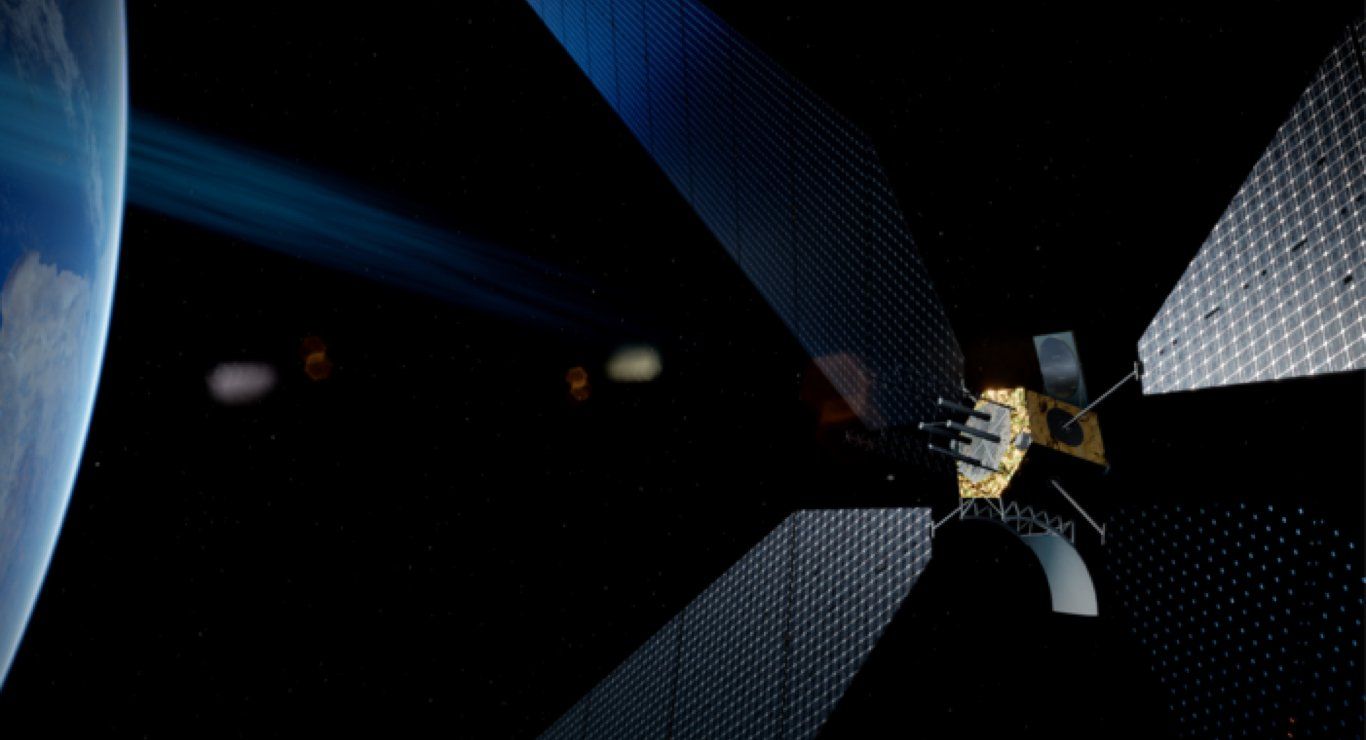
Increasing interest in space based solar power (Image: ESA)
Private sector supplying innovation to protect Earth and our future
A new drive to discover space is still increasingly driven by the private sector, increasing efficiency and accessibility, and this week provided us with yet more evidence of this. An article from
compositesworld.com highlighted the development in carbon fibre first stage fuel tanks in rockets, in being able to increase efficiency and payload capacity. Such tech is under development by Boeing and the German DLR. Could this technology be yet another milestone in increasing accessibility to space?
Similarly, rocket manufacturers Relativity Space continue on course with their plans to “disrupt” the market with their 3D printed, reusable rockets. Co-founder, Tom Ellis, said in an interview with ARS Technica "Almost from the beginning of the company I wanted to build a Falcon 9 competitor, because I really think that’s needed in the market”. Their reusable Terran R rocket is due to launch late 2024. Another company looking into the benefits of AM technology and reusability is German company, Rocket Factory Augsburg (RFA), highlighting the importance of being able to reuse the engines, being the most expansive part of the rocket.
Another area of increasing interest is space-based solar power generation, with the ESA making it priority as part of its POLARIS preparatory programme, due to be discussed at the ESA Council at Ministerial Level in November 2022. UK-based engineering solution firm IECL are developing their project, Cassiopeia, to generate solar power in space for terrestrial energy needs. They would look to transfer the energy using radio frequency microwave radiation. New Zealand company, Emrod, have also recently demonstrated their wireless energy transfer technology, looking at using creating a satellite network to transfer energy around the globe. Space-based solar energy looks to grow significantly, especially in humankind’s quest to reduce reliance on fossil fuels and importing energy from abroad.
In other innovations this week, Welsh company Space Forge are looking forwards to launching their Forgestar-0 satellite as part of Virgin Orbit’s debut UK launch next month. The satellite will be their first demonstration of orbital in-situ manufacture, taking advantage of zero gravity to create 'super materials' such as new alloys, medicines, and semiconductors. This demonstration also closely aligns to Jeff Bezos’ vision of ‘building a road to space’, and taking industries off the planet.
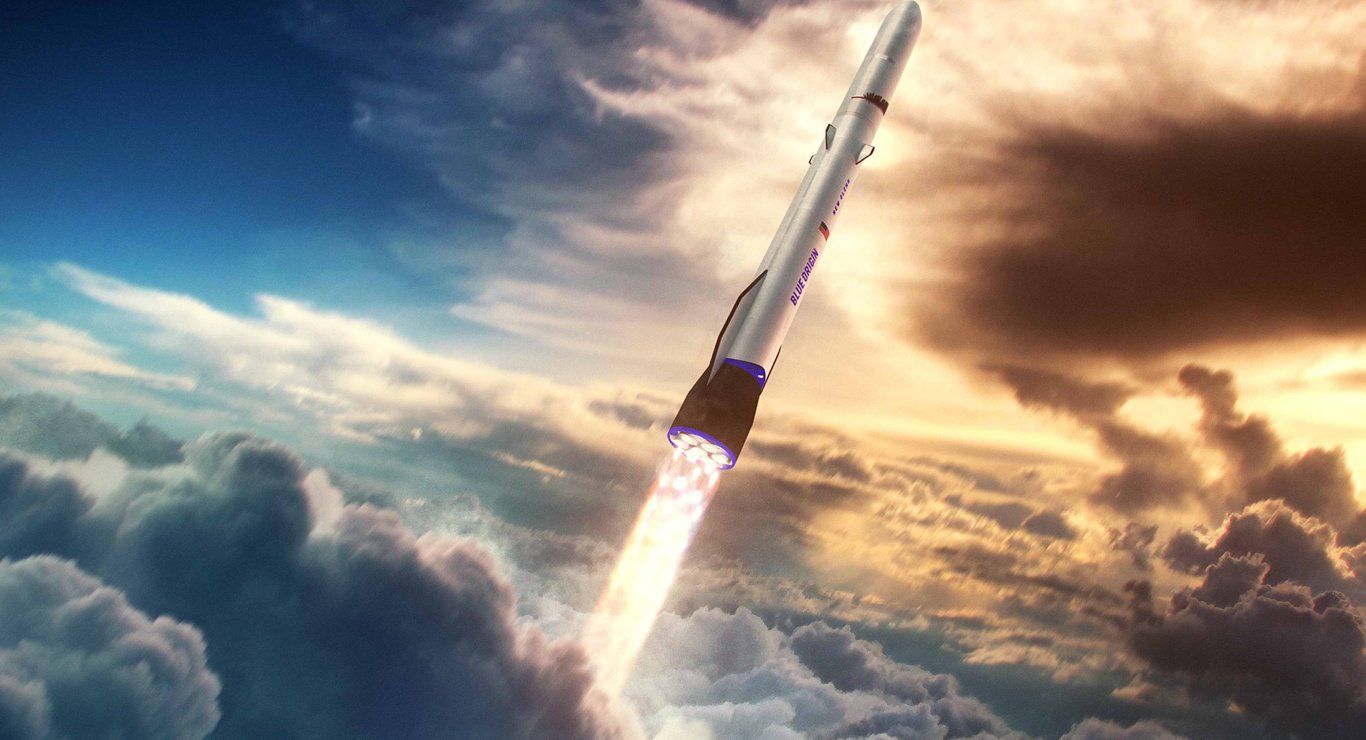
Blue Origin working on New Glenn and commercial station (Image: Blue Origin)
Private sector could provide a neutral outlet for cooperation
More nations are making it a national determination, to make space a part of their future, and reap the benefits from it, which in turn, is giving rise to a new commercial sector. Yet whilst the space industry is on the rise, cooperation between leading space the leading space nations Russia, US and China appears to be declining. But at the same time, all the major parties appear to have a shared desire to maintain and build a peaceful future in outer space. Iran this week become the latest to commit its future in space for peaceful purposes.
Whilst nations and national agencies may be finding it more difficult to build cooperation, brought about by events such as the Ukraine conflict, then perhaps the increasingly influential private sector can provide a new entry point. It’s something we regularly discuss, but was reaffirmed in an article from Space News this week. Representatives of countries currently involved in the ISS at the American Institute of Aeronautics and Astronautics’ ASCEND conference on October 25th discussed how cooperation on new, commercial space stations, might work. Of course, things will have to work differently than ISS, which currently managed by national agencies. New commercial stations may be developed through a cooperative of international companies. For example, Axiom’s proposed stations will see Thales Alenia (Francece/Italy) working alongside Axiom (US), opening a gateway for international cooperation.
Whilst NASA is mostly prohibited from working with the Chinese national space agency, would there be any measures in place to prevent cooperative projects through private platforms, such as commercial stations? The UAE seem to be attempting this form of bridge-building, by working with iSpace (Japan) and SpaceX (US), in order to launch their lunar rover, but at the same time will still work with the CNSA (China) to launch a later lunar mission in 2026. By working with US private companies, has the UAE found its way around geopolitical barriers?
Whether these attempts are successful or not, cooperation will need to found in some way or shape. As well for simply preserving peace, working together makes our future in space more sustainable and safer. The ISS has recently again had to swerve to avoid a debris, caused by the Russian ASAT test last year. Without cooperation on issues such as spatial awareness, collisions may not be avoided, especially in an ever more populated Earth orbit. Moreover, it will be, and already is, essential in order to build a framework which allows space to be the benefit of all humankind, and not the few.
Private sector companies are becoming influential stakeholders, and it’s with their innovations that we’ll find success in space. For example, this week it was revealed that SpaceX are now NASA’s largest for-profit vendor. Furthermore, executives from Blue Origin were recently given an unclassified briefing from US Space Systems Command. We can see the value that is being placed on such companies.
Through providing the innovative technology required to succeed in space, the private sector could perhaps provide new perspectives, and have the influence required to build peaceful, constructive and cooperative international relationships in space.
Share this article
External Links
This Week
*News articles posted here are not property of ANASDA GmbH and belong to their respected owners. Postings here are external links only.
24 - 28 October 2022
Commercial entities could be the key to international cooperation in outer space
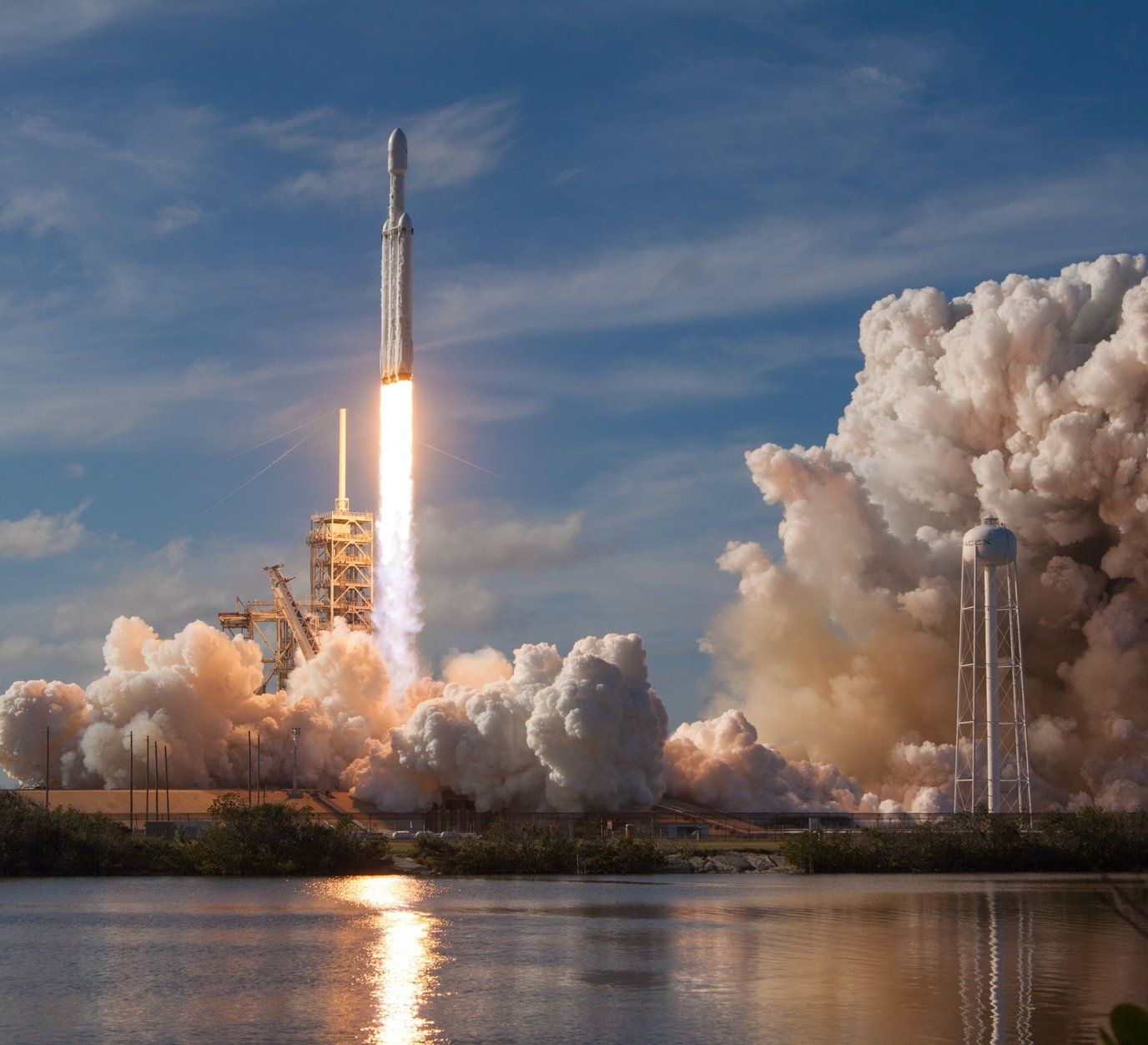
SpaceX are now NASA's largest for-profit vendor (Image: SpaceX)
Cooperation in space is key to our future success, and this is perfectly exemplified in the ongoing cooperation on the ISS between Russia and the US, despite deteriorating international relations over the Ukraine crisis. Cooperation is vital for issues such as debris and traffic management, establishing rules and norms for safety and sustainability, and in order to share resources fairly and enable a peaceful future in outer space.
However, there are increasing threats to this vision of a cooperative future. Russia and the west are growing further apart, with Mercedes Benz being latest international company to fully withdraw from Russia. The US and China appear to be engaging in a new space race, and legal hurdles such as the US Wolf Amendment still prevents NASA from using public money in order to cooperate with the Chinese government or state entities.
This decline in international cooperation is coming at a time when space is increasingly becoming a national directive, throughout the world, with new players emerging. This week NASA has committed to its long-term plans for the Artemis missions, ordering 3 more Orion spacecraft from Lockheed Martin, and have also been testing a prototype lunar rover, also earmarked for the Artemis programme. China’s secretive spaceplane has been noted to have raised its orbit, bringing up questions surrounding the uses of such technology (similar tech also under development with the US). Furthermore, Chinese scientists have had a breakthrough with the development of electromagnetic propulsion, shifting a 1000kg object up to 1030kph, claiming the breakthrough could revolutionise space exploration and would eliminate need for fossil fuels.
At the same time, the US space force this week announced to seek an increased budget beyond 2023, in order to keep ahead of China in space, with Gen. David “DT” Thompson, U.S. vice chief of space operations admitting that “Their space capabilities are still not quite as good as ours, but they are really, really good.” Additionally, geopolitical events continue to affect international relations, seemingly preventing the growth of any kind of new cooperation in space. The Ukraine conflict has steered European countries to establish their own sovereign launch capabilities, severing ties with Russian Soyuz. Also, this week a Ukrainian lawmaker, whilst visiting Taiwan, has hinted that Ukraine could look to build closer ties with China, should it be discovered that Russia has received assistance from the Chinese in their war against Ukraine. International relations are shifting, and it appears that universal cooperation in space may be some way off.
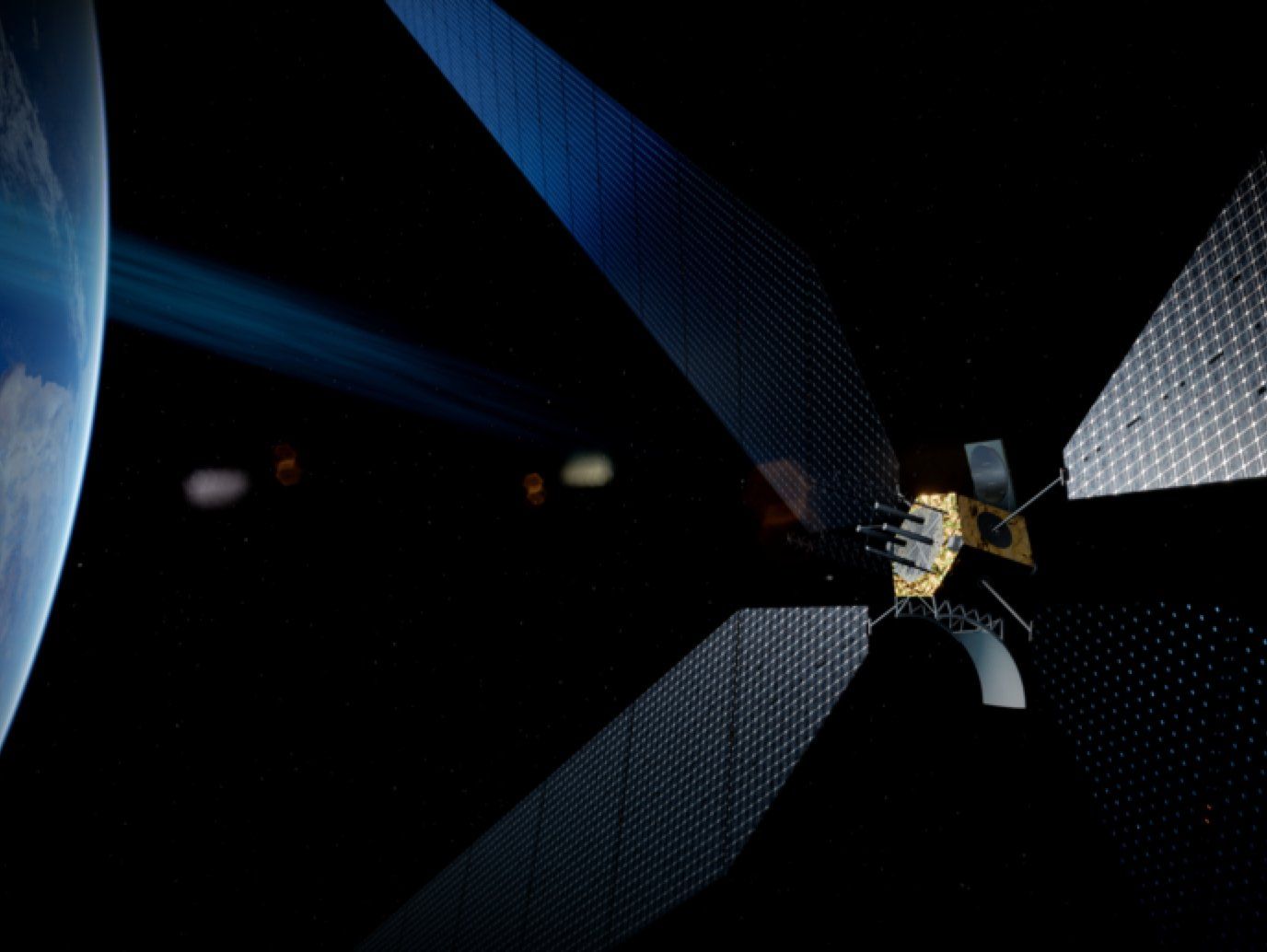
Increasing interest in space based solar power (Image: ESA)
Private sector supplying innovation to protect Earth and our future
A new drive to discover space is still increasingly driven by the private sector, increasing efficiency and accessibility, and this week provided us with yet more evidence of this. An article from compositesworld.com highlighted the development in carbon fibre first stage fuel tanks in rockets, in being able to increase efficiency and payload capacity. Such tech is under development by Boeing and the German DLR. Could this technology be yet another milestone in increasing accessibility to space?
Similarly, rocket manufacturers Relativity Space continue on course with their plans to “disrupt” the market with their 3D printed, reusable rockets. Co-founder, Tom Ellis, said in an interview with ARS Technica "Almost from the beginning of the company I wanted to build a Falcon 9 competitor, because I really think that’s needed in the market”. Their reusable Terran R rocket is due to launch late 2024. Another company looking into the benefits of AM technology and reusability is German company, Rocket Factory Augsburg (RFA), highlighting the importance of being able to reuse the engines, being the most expansive part of the rocket.
Another area of increasing interest is space-based solar power generation, with the ESA making it priority as part of its POLARIS preparatory programme, due to be discussed at the ESA Council at Ministerial Level in November 2022. UK-based engineering solution firm IECL are developing their project, Cassiopeia, to generate solar power in space for terrestrial energy needs. They would look to transfer the energy using radio frequency microwave radiation. New Zealand company, Emrod, have also recently demonstrated their wireless energy transfer technology, looking at using creating a satellite network to transfer energy around the globe. Space-based solar energy looks to grow significantly, especially in humankind’s quest to reduce reliance on fossil fuels and importing energy from abroad.
In other innovations this week, Welsh company Space Forge are looking forwards to launching their Forgestar-0 satellite as part of Virgin Orbit’s debut UK launch next month. The satellite will be their first demonstration of orbital in-situ manufacture, taking advantage of zero gravity to create 'super materials' such as new alloys, medicines, and semiconductors. This demonstration also closely aligns to Jeff Bezos’ vision of ‘building a road to space’, and taking industries off the planet.
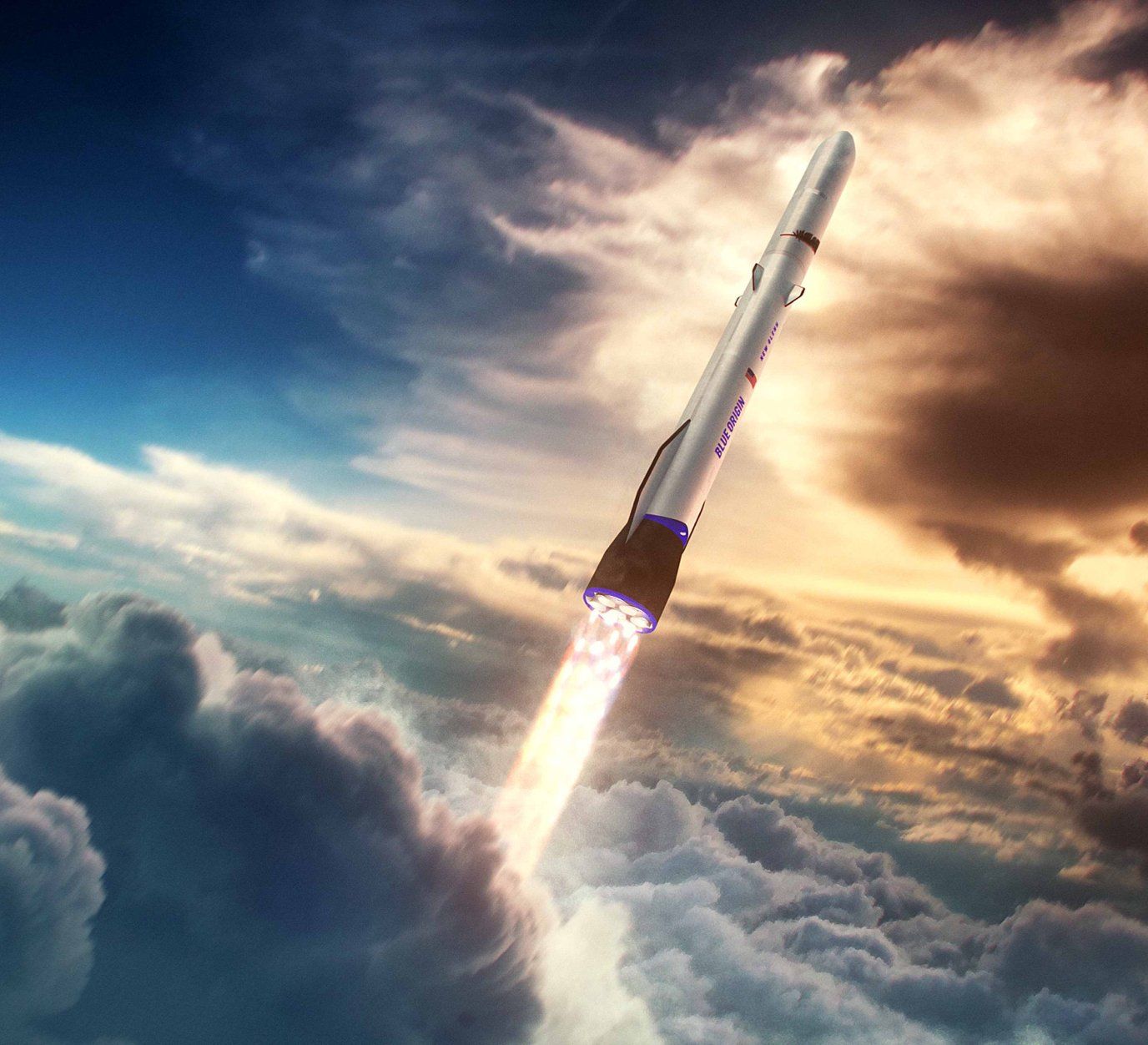
Blue Origin working on New Glenn and commercial station (Image: Blue Origin)
Private sector could provide a neutral outlet for cooperation
More nations are making it a national determination, to make space a part of their future, and reap the benefits from it, which in turn, is giving rise to a new commercial sector. Yet whilst the space industry is on the rise, cooperation between leading space the leading space nations Russia, US and China appears to be declining. But at the same time, all the major parties appear to have a shared desire to maintain and build a peaceful future in outer space. Iran this week become the latest to commit its future in space for peaceful purposes.
Whilst nations and national agencies may be finding it more difficult to build cooperation, brought about by events such as the Ukraine conflict, then perhaps the increasingly influential private sector can provide a new entry point. It’s something we regularly discuss, but was reaffirmed in an article from Space News this week. Representatives of countries currently involved in the ISS at the American Institute of Aeronautics and Astronautics’ ASCEND conference on October 25th discussed how cooperation on new, commercial space stations, might work. Of course, things will have to work differently than ISS, which currently managed by national agencies. New commercial stations may be developed through a cooperative of international companies. For example, Axiom’s proposed stations will see Thales Alenia (Francece/Italy) working alongside Axiom (US), opening a gateway for international cooperation.
Whilst NASA is mostly prohibited from working with the Chinese national space agency, would there be any measures in place to prevent cooperative projects through private platforms, such as commercial stations? The UAE seem to be attempting this form of bridge-building, by working with iSpace (Japan) and SpaceX (US), in order to launch their lunar rover, but at the same time will still work with the CNSA (China) to launch a later lunar mission in 2026. By working with US private companies, has the UAE found its way around geopolitical barriers?
Whether these attempts are successful or not, cooperation will need to found in some way or shape. As well for simply preserving peace, working together makes our future in space more sustainable and safer. The ISS has recently again had to swerve to avoid a debris, caused by the Russian ASAT test last year. Without cooperation on issues such as spatial awareness, collisions may not be avoided, especially in an ever more populated Earth orbit. Moreover, it will be, and already is, essential in order to build a framework which allows space to be the benefit of all humankind, and not the few.
Private sector companies are becoming influential stakeholders, and it’s with their innovations that we’ll find success in space. For example, this week it was revealed that SpaceX are now NASA’s largest for-profit vendor. Furthermore, executives from Blue Origin were recently given an unclassified briefing from US Space Systems Command. We can see the value that is being placed on such companies.
Through providing the innovative technology required to succeed in space, the private sector could perhaps provide new perspectives, and have the influence required to build peaceful, constructive and cooperative international relationships in space.
Share this article
External Links
This Week
*News articles posted here are not property of ANASDA GmbH and belong to their respected owners. Postings here are external links only.




























